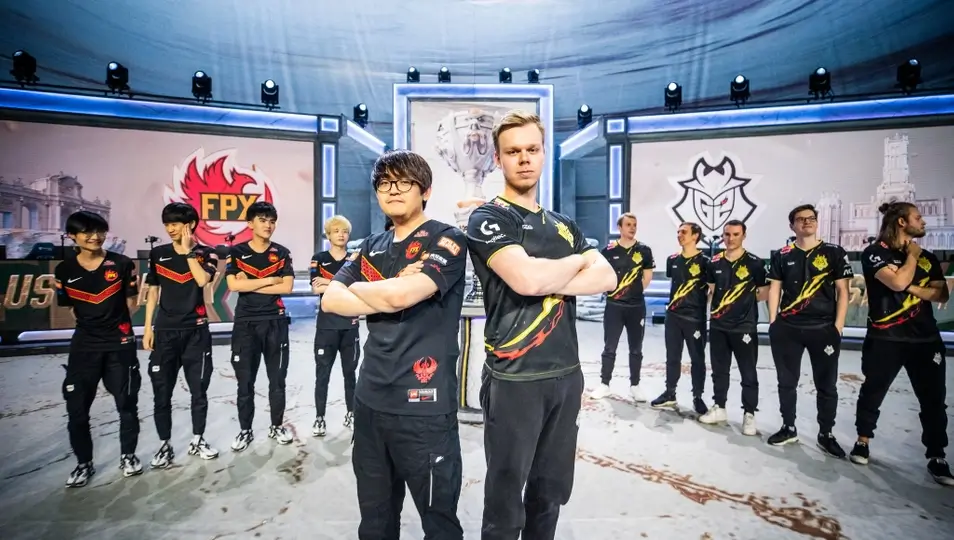This is how to best evaluate Esports matches before betting

There’s a lot to consider when it comes to betting on any given competitive contest, but things are even trickier when it comes to esports. With a hectic event schedule that varies from title to title and other variables that are almost always changing, getting into esports betting might be intimidating at first glance.
For the most part, weighing how to bet on a match in esports isn’t actually all that different from any other sport. By weighing the strengths, weaknesses, and recent results of the teams involved, bettors can get a good feel for how to go about it.
What other considerations are there when it comes to betting in esports? And what resources can be used to get this information? WIN.gg is here to help.
Choosing when to bet and which markets to use
Before committing to any bet, it’s important to develop an overall betting strategy. Are you actually looking to profit off of this? Or are you looking to put in a bit of money and just ride it for an extended period of time before cashing out? Just looking to have some more fun when watching games?
Figuring out which approach you’re wanting to take is the first step in deciding which games to bet on.
Esports has “sure thing” outcomes far more often than any other sport. With things like open qualifiers and regional leagues, some of the best teams in the world will cross paths with legitimate amateurs in matches that are the equivalent of the New York Yankees competing against a local softball team.
While that might seem like an easy bet, it might not be worth it if you’re looking to make serious gains. If you’re just looking to add an extra bit of fun into watching an otherwise lopsided contest or are comfortable with taking very low risk and low reward bets, then this might just be an ideal sort of game for you.
Of course, there are ways of upping the stakes in any given matchup.
Esports betting has a number of different prop bets or secondary markets that can transform a lopsided contest into a more lucrative affair. Common markets across all esports titles include handicapping how many games will take place in a best-of-three or best-of-five series, predicting what the final score of a series will be, and a variety of other functionally random bets.
For a deep dive on secondary markets in esports and what these mean, check out our full guide on esports betting.
Look at the recent history of teams before betting on them
Teams’ fortunes change very quickly in esports. Updates and expansions to games have profound impacts on teams’ strengths and can render some of their best strategies obsolete in an instant. Alongside this, things like player burnout and internal turmoil can send a team tumbling off their perch in record time.
Because of that, it’s absolutely vital to take a team’s temperature before committing your money to their success.
The best way to do this is looking over their most recent tournament results. How has the team performed? Who did they win against? Who did they lose against? How emphatic were those wins and losses?
If a team looks like it is starting a skid, it’s probably not a good idea to bet on them. On the flipside, if a team is looking like it’s on the decline, it might be a good idea to bet against them.
Picking out when to do so isn’t an exact science. Counter-Strike: Global Offensive team Astralis were untouchably good for over a year, but went into a bit of a skid in the summer of 2019. The team returned to form at the StarLadder Berlin Major at the expense of the world’s number one team at the time, Team Liquid, and were very good in the months that followed.
That rise, fall, and return presented different opportunities for bettors at each step along the way. Anticipating a team’s current state and future prospects is critical when it comes to making accurate predictions for your bets.
Look at the history between the two teams you’re betting on
Lopsided rivalries are something of a staple in sports. Esports doesn’t have the same sort of extended history that many more traditional sports do, but those same sorts of enduring rivalries still exist. Whether it’s psychological or stylistic, certain teams can just have an edge over a specific opponent, even when they should be at a disadvantage on paper. Looking into the recent history two teams have with each other is always worth doing before placing a bet.
Different games have different resources for looking into this that can reach back months or even years to help bettors parse historical matchups.
For Counter-Strike: Global Offensive, HLTV.org has an almost comprehensive list of official CSGO matches. For Dota 2, Dotabuff allows users to quickly find both team vs. team, as well as player vs. team results. For League of Legends, Gamepedia is among the better ways resources for tracking how specific matchups have played out over history.
Esports organizations are structurally quite different from teams in traditional sports leagues. High turnover at all levels of teams stands in stark contrast to traditional sports leagues in which coaches and key players might stay with the same franchise for a decade or more, lending to a reliably consistent style of play.
As a result, it’s not necessarily a great idea to look back over the course of years. But looking over the last several months is strongly recommended.
Pay very close attention to relevant esports news
When two teams in traditional sports are facing off, fans know what they are getting. The rosters are set in stone, schedules are defined and prepared far in advance, and players can be expected to be competing at something close to an optimal level. Injuries and accidents happen, but variables are largely controlled and predictable.
That’s not the case in esports.
In games like Counter-Strike and Dota 2, teams routinely withdraw from events. Replacements will be called in on short notice and may show up without proper preparation. Visa issues will pop up, forcing teams to play with substitute players. Teams will wear themselves down by competing in China one weekend, then going to Europe, then flying to the United States for another tournament right after.
In the vast majority of cases these things work against teams, but there are some exceptions.
In 2018, Ninjas in Pyjamas’ Dota 2 team was forced to use a substitute offlaner at the Kuala Lumpur Major when Neta “33” Shapira was unable to secure a visa. This allowed the team to substitute in Ivan “MinD_ContRoL” Ivanov, arguably the best offlaner in the world. MinD_ContRoL performed incredibly well at the event, which resulted in NiP posting its best performance in a major that season.
Because of developments like this, paying attention to the minutiae of news in esports is arguably more important than in traditional sports. Thankfully, WIN.gg has you covered there.
Knowing whether a team is competing at full strength, and whether there are factors that might be preventing them from doing so, is a must for any esports bettor.
Looking to make the dive into esports betting? You can find more information and get started at .

